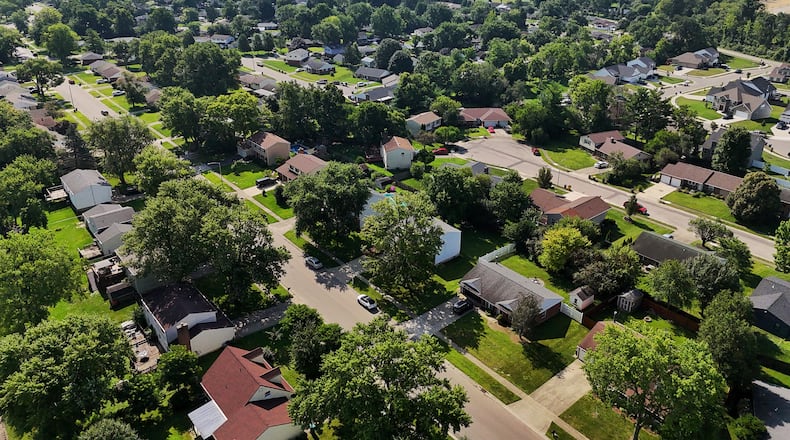Co-sponsor of the bill former Ashtabula County auditor Rep. David Thomas said the bill has been modified five times.
“The base of the bill is still intact, we’re moving forward, we’re limiting revenue, we’re limiting tax increases for 20-mill floor properties to inflation,” Thomas said. “But the (modification) allows us to give a direct credit and decrease to all those properties. We wanted to treat everyone at the same time and fairly.”
He said they essentially took a “time machine” approach, going back to 2022 — when property values ballooned and many tax bills subsequently exploded — and examined the value increases, inflation rate and “that difference between let’s say a 30% value increase versus a 9% rate of inflation” will produce the credit amount.
They are applying it statewide in school districts that are at the 20-mill floor, where value increases produced huge tax windfalls throughout the mandated property reappraisal schedule over the past few years. Ohio law says once a school district’s total current expense millage is reduced to 20 mills, it cannot be reduced any further, so tax revenues grow as property values increase.
He said there are 483 school districts at the 20-mill floor — out of roughly 611 statewide — and their taxpayers will see the credit on their second-half bills next year if the bill is passed. Vocational schools are also included in this plan.
Rep. Jim Hoops, R-Napoleon is also a former county auditor and co-sponsor of HB 186. He said they are hoping the measure will give taxpayers the relief they are clamoring for and is “fair” for everyone.
“Our goal in introducing this bill was to try to figure out how we can kind of control the growth in property taxes because, as all of you are aware, this is a kitchen table issue. Everybody’s talking about it,” he said. “We also have a ballot issue out there people are getting signatures for because there is a lot of frustration out there.”
The “Sword of Damocles” was mentioned earlier in the meeting, referring to the efforts by Citizens for Property Tax Reform — the grassroots group from Cuyahoga County — that is attempting to put a constitutional amendment to eliminate property taxes entirely on the statewide November 2026 ballot.
Rep. Dan Troy, D-Willowick, said he understands this bill is aimed at appeasing the group trying annihilate property taxes, but asked why “isn’t the state.” “Why aren’t we stepping up to the plate and shouldering more of the burden” rather than grabbing money from schools?”
Thomas said they needed to solve the problem of “unvoted spikes” in property taxes — that are largely a nasty side effect of the pandemic. He said this bill does that and addresses the past disaster and keeps it from recurring.
The agenda for next week’s Ways and Means Committee meeting indicates there will possibly be a vote on HB 186 to send it to the House floor.
This media outlet recently asked Beth Blackmarr, spokeswoman for the ballot effort, what it will take to stop their movement.
“I don’t know, that’s up to the individuals, but I’m going to guess it’s going to be something big, like they’re going to have to do something like say stop charging property tax for everybody over 65,” she said. “They are going to have to make a grand gesture and it’s going to have to be secured before voting day.”
Gov. Mike DeWine already vetoed all but one of the legislature’s property tax reform measures in the biennium budget because he said they are harmful to schools and children. This media outlet asked Thomas if HB 186 can survive the veto pen.
“House Bill 186 is the bill his working group is focused on, not with this new policy but the base level of it,” he said. “I think the governor even realizes we’re now at the point where he’s going to have to sign it, just because if we don’t even do this one, what does that look like.”
About the Author
